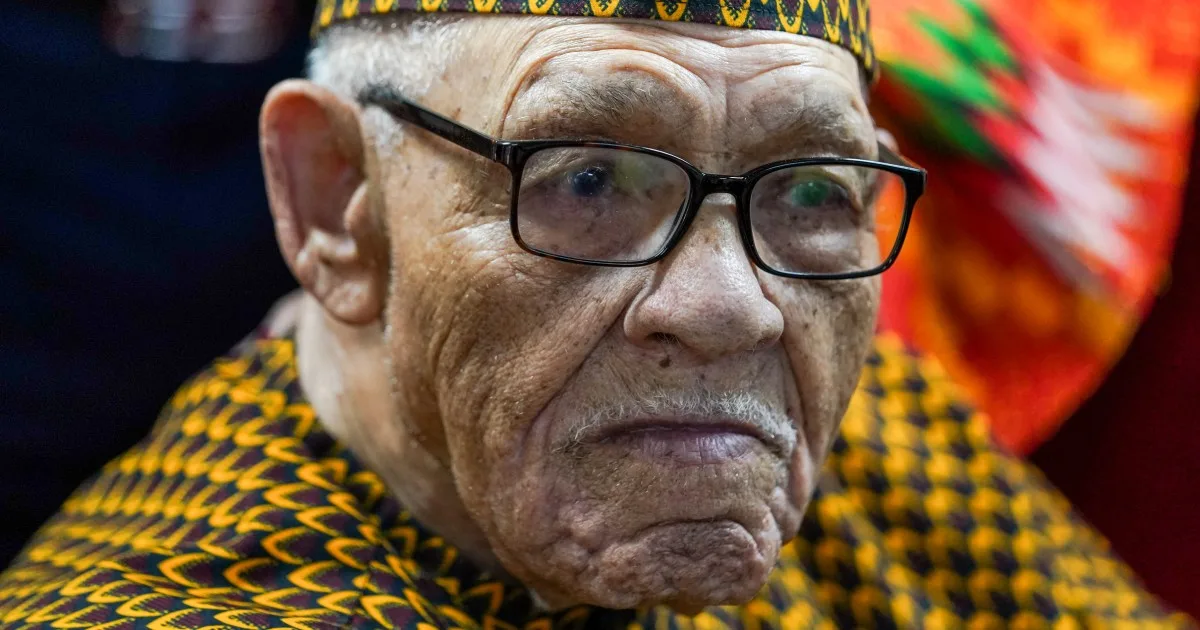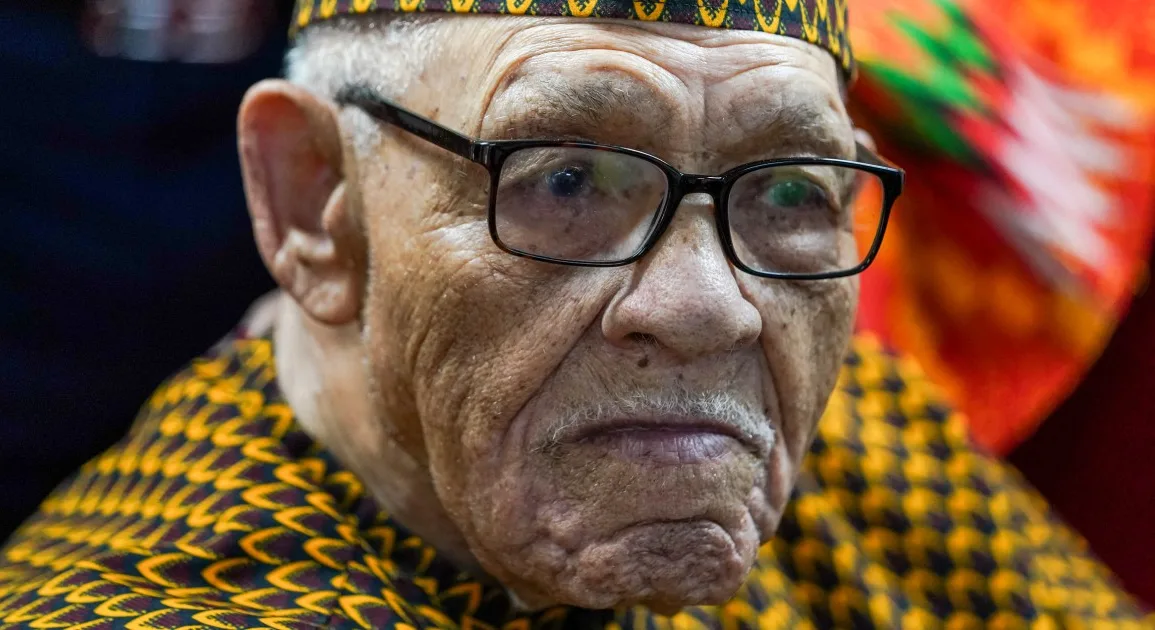
One of the last survivors of the 1921 Tulsa Race Massacre died on Monday.
Hughes “Uncle Red” Van Ellis was 102, according to a family publicist.
Van Ellis was 6-months-old when his family fled a white mob that killed hundreds of Black people and decimated a thriving Oklahoma community more than a century ago, publicist Mocha Ochoa said in a statement about his death.
“He was pure joy personified,” Ochoa said in the statement. “I will miss him dearly but honored to have had the privilege to share time, space, and history with ‘Uncle Redd.’ They say when an elder dies, so does a library.”
Despite his family losing everything in the massacre, only escaping with the clothes on their back, Van Ellis still believed in the promise of his country and fought for it in World War II, the statement said.
“I did it because I believed, in the end, America would get it right,” he said.
Van Ellis is survived by his daughters, Mallee and Muriel, and his large family, the statement said.
A white mob killed an estimated 300 Black Americans in an area called the “Black Wall Street” on May 31, 1921 and into the next day. The neighborhood was in the Greenwood District, where prior to the massacre, Black business leaders, homeowners and others thrived.
Not only did hundreds of Black people die within the district’s 35 blocks, but more than 1,200 homes, at least 60 business and dozens of churches were burned and destroyed.
The massacre most likely started from a lie or misunderstanding. A Black boy got into an elevator with a white girl in Tulsa. A local newspaper suggested he had tried to sexually assault her, an allegation never confirmed or endorsed by the girl. The newspaper’s editorial page called for a lynching.
An Oklahoma judge in July dismissed a lawsuit seeking reparations filed on behalf of Van Ellis, his older sister Viola Fletcher and Lessie Benningfield Randle, who were then the last known survivors of the massacre.
Benningfield Randle, 108, and Fletcher, 109, are still alive.
The defendants in the lawsuit included the city of Tulsa and the county. It also named the Oklahoma National Guard. The judge dismissed the lawsuit with prejudice, meaning it may not be refiled in state court.
The judge’s decision to dismiss the case has been appealed, court records show.
The defendants argued the plaintiffs did not suffer personal adverse affects from the massacre. The plaintiffs, however, called it one of the country’s “worst acts of domestic terrorism.”
“This brutal, inhumane attack … robbed thousands of African Americans of their right of self-determination on which they had built this self-sustaining community,” the suit said.
The plaintiffs have never recovered from the massacre, according to the lawsuit.
Fletcher was 7-years-old during the massacre. Led by her parents, she and her five siblings escaped from the dangerous mob, she told NBC News in 2021, for a story about the 100-year anniversary of the infamous attack.
“People running and screaming. And noise from the air like an airplane. And — just so many things was disturbing, you know. And fires burning, and smelling smoke,” Fletcher said. “And then we could hear someone going through the neighborhood … that everybody should leave town, that they were killing all the Black people. So, you know, that was frightening.”



